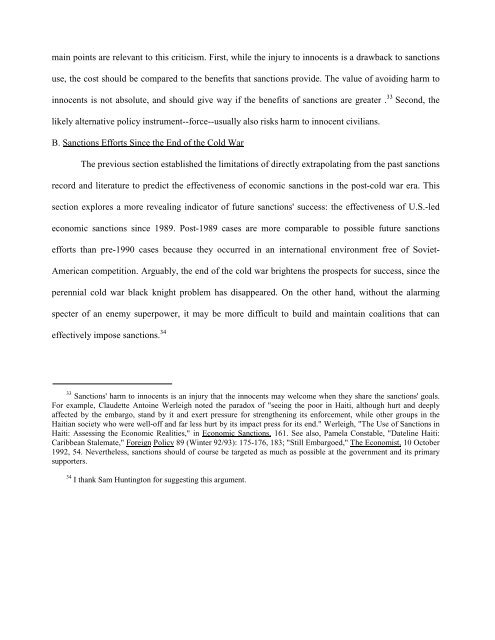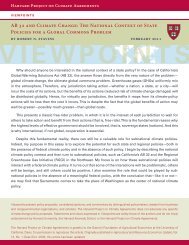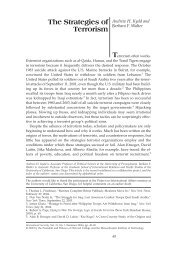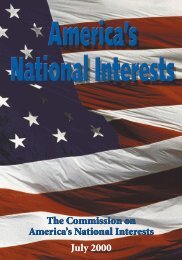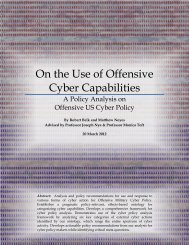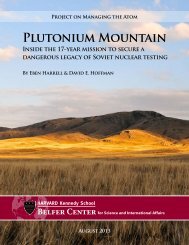Using Economic Sanctions to Prevent Deadly Conflict Elizabeth S ...
Using Economic Sanctions to Prevent Deadly Conflict Elizabeth S ...
Using Economic Sanctions to Prevent Deadly Conflict Elizabeth S ...
You also want an ePaper? Increase the reach of your titles
YUMPU automatically turns print PDFs into web optimized ePapers that Google loves.
main points are relevant <strong>to</strong> this criticism. First, while the injury <strong>to</strong> innocents is a drawback <strong>to</strong> sanctionsuse, the cost should be compared <strong>to</strong> the benefits that sanctions provide. The value of avoiding harm <strong>to</strong>innocents is not absolute, and should give way if the benefits of sanctions are greater . 33 Second, thelikely alternative policy instrument--force--usually also risks harm <strong>to</strong> innocent civilians.B. <strong>Sanctions</strong> Efforts Since the End of the Cold WarThe previous section established the limitations of directly extrapolating from the past sanctionsrecord and literature <strong>to</strong> predict the effectiveness of economic sanctions in the post-cold war era. Thissection explores a more revealing indica<strong>to</strong>r of future sanctions' success: the effectiveness of U.S.-ledeconomic sanctions since 1989. Post-1989 cases are more comparable <strong>to</strong> possible future sanctionsefforts than pre-1990 cases because they occurred in an international environment free of Soviet-American competition. Arguably, the end of the cold war brightens the prospects for success, since theperennial cold war black knight problem has disappeared. On the other hand, without the alarmingspecter of an enemy superpower, it may be more difficult <strong>to</strong> build and maintain coalitions that caneffectively impose sanctions. 3433 <strong>Sanctions</strong>' harm <strong>to</strong> innocents is an injury that the innocents may welcome when they share the sanctions' goals.For example, Claudette An<strong>to</strong>ine Werleigh noted the paradox of "seeing the poor in Haiti, although hurt and deeplyaffected by the embargo, stand by it and exert pressure for strengthening its enforcement, while other groups in theHaitian society who were well-off and far less hurt by its impact press for its end." Werleigh, "The Use of <strong>Sanctions</strong> inHaiti: Assessing the <strong>Economic</strong> Realities," in <strong>Economic</strong> <strong>Sanctions</strong>, 161. See also, Pamela Constable, "Dateline Haiti:Caribbean Stalemate," Foreign Policy 89 (Winter 92/93): 175-176, 183; "Still Embargoed," The Economist, 10 Oc<strong>to</strong>ber1992, 54. Nevertheless, sanctions should of course be targeted as much as possible at the government and its primarysupporters.34 I thank Sam Hunting<strong>to</strong>n for suggesting this argument.


